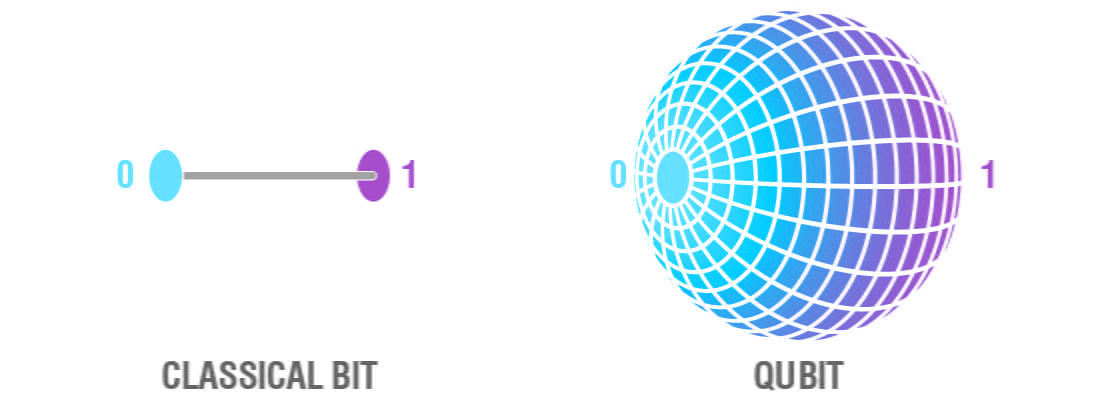With the ability to perform calculations at unimaginably high speeds, quantum computing has the potential to change every aspect of how we live. GAM Investments’ David Goodman explores the disruptive potential of quantum technology across sectors such as finance, healthcare and cybersecurity.
10 May 2023
Click here to view the Disruptive Strategist newsletter in full.
The potential of quantum computing has led to numerous speculations about its disruptive capability. The technology boasts of calculations so fast, far outstripping those of traditional computers. The expectation is for many industry sectors to undergo dramatic changes following its integration.
What is Quantum computing?
Set to usher in a new era of super-powered computers, quantum computing’s rapidly evolving technology promises to advance problem solving way beyond the limits of traditional systems.
The devil is in the detail
At its heart, this breakthrough technology is based on the principles of quantum physics and operates by controlling the behaviour of atoms and fundamental particles in a radically different way to regular computers.
While traditional computers use ‘bits’ for processing information – effectively individual switches that are either on or off – the ‘qubits’ used in quantum computers can be both on and off at the same time, making them immensely faster and more powerful; able to exist in multiple states simultaneously, the qubits enable hugely complex problems to be tackled.

Scientists are still in the process of making quantum computers work reliably, but once they do, the sky is the limit. From cracking unbreakable codes to the swift development of new medicines, it will all be for the taking.
A revolutionary scientific phenomenon
What has also become clear, is that quantum computing is a game-changer and should not be regarded in the same vein as regular computers. Just like a light bulb is not a more powerful version of a candle, quantum computing is based on a completely new scientific foundation.

Speed to transform our lives
Able to perform complex calculations at unimaginably high speeds, quantum technology has the potential to change every aspect of how we live. Its ability to rapidly process vast amounts of information makes it ideal for handling big data analysis, machine learning and artificial intelligence applications. By leveraging this technology, organisations will quickly identify patterns in large data sets, which can lead to new insights and solutions and eventually to new ways of living.
Making quantum’s speed relatable
Do you recall how Garry Kasparov was defeated in 1997 by IBM's computer Deep Blue? The machine looked at 200 million potential moves every second – a quantum computer assesses one trillion moves per second.
When will it go mainstream?
Quantum computing has been predicted since the 1980s, with work on it gathering pace since the release of powerful and impressive AI models such as GPT-4 which are based on traditional computing platforms.
It is anticipated that over the next five to 10 years, quantum will break into the mainstream, moving from research labs and huge enterprises and into households and businesses of all sizes.
By the numbers
McKinsey predicts quantum computing now has the potential to capture nearly USD 700 billion in value as early as 2035, with that market estimated to exceed USD 90 billion annually by 20401.
Major players in the quantum world
IBM, Google, Microsoft, and Intel are all in the race to produce mainstream quantum computers, with prototypes being worked on to make them more reliable, scalable, and commercially viable.
Where are they at?
IBM developed the first quantum computer in 1997 and has now built a 433-qubit programmable system – triple the size of the company’s previous record breaking 127 qubit computer – solving problems traditional computers cannot reach. The company intends to scale this up to over 4,000 qubits by 2025.
Google announced in September 2019 that it had achieved "quantum supremacy," with its computer able to solve a problem in 200 seconds that a traditional computer would need 10,000 years to solve.
Microsoft has also made significant strides in development, partnering with top universities to build the first scalable quantum computer that can run on the cloud.
Access for businesses via the cloud
Sectors at the forefront of disruption by quantum technology include finance, healthcare, security and logistics, who all eagerly await the technology to become commercially available. Critically, it will be accessible as a service on the cloud, allowing businesses on-demand quantum computing power, without the need to build hardware.
Benefits for industries at the forefront
Finance:
- Improve the speed and accuracy of financial risk predictions by running more simulations than traditional computers
- Help optimise investment portfolios
- Reduce complexities in pricing financial derivatives
- Detect fraud with higher precision
- Improved profitability and risk management capabilities
Healthcare:
- Drug discovery and development significantly accelerated due to highly complex simulations and drug testing
- Enable analysis of large sets of genomic data, leading to faster disease diagnosis and personalised treatment
- Open a new dimension in drug discovery, diagnosis and provision of better medical care
Security:
- Transform cybersecurity by breaking down traditional encryption methods
- Creation of new levels of security and defence against cyber threats by providing faster and more secure data encryption, decryption and more robust digital security techniques
- Strengthen cybersecurity by identifying and responding to vulnerabilities in real-time
Logistics:
- Enable analysis of massive amounts of data in real-time and improve logistics and routes
- Reduced costs and improved efficiency
- Enable development of more accurate predictive models, allowing businesses to react faster to changes in demand
The take outs
Quantum computing has immense potential to transform a variety of sectors. With higher efficiency, faster analysis capabilities and an unprecedented amount of computing power, the technology could herald business growth across multiple industries such as finance, healthcare and cybersecurity among others.

Although we are in the earliest stages of its development and adoption, quantum computing is vastly different from traditional computing and will have a ground-breaking impact on the existing industries, way beyond the effects of previous technological innovations. The implications of this technology are broad and far-reaching, and the real impact is yet to be fully understood. As ever, we will be keeping a close eye for investable opportunities.
The information in this document is given for information purposes only and does not qualify as investment advice. Opinions and assessments contained in this document may change and reflect the point of view of GAM in the current economic environment. No liability shall be accepted for the accuracy and completeness of the information. Past performance is no indicator of current or future trends. The mentioned financial instruments are provided for illustrative purposes only and shall not be considered as a direct offering, investment recommendation or investment advice or an invitation to invest in any GAM product or strategy. Reference to a security is not a recommendation to buy or sell that security. The securities listed were selected from the universe of securities covered by the portfolio managers to assist the reader in better understanding the themes presented. The securities included are not necessarily held by any portfolio or represent any recommendations by the portfolio managers.
